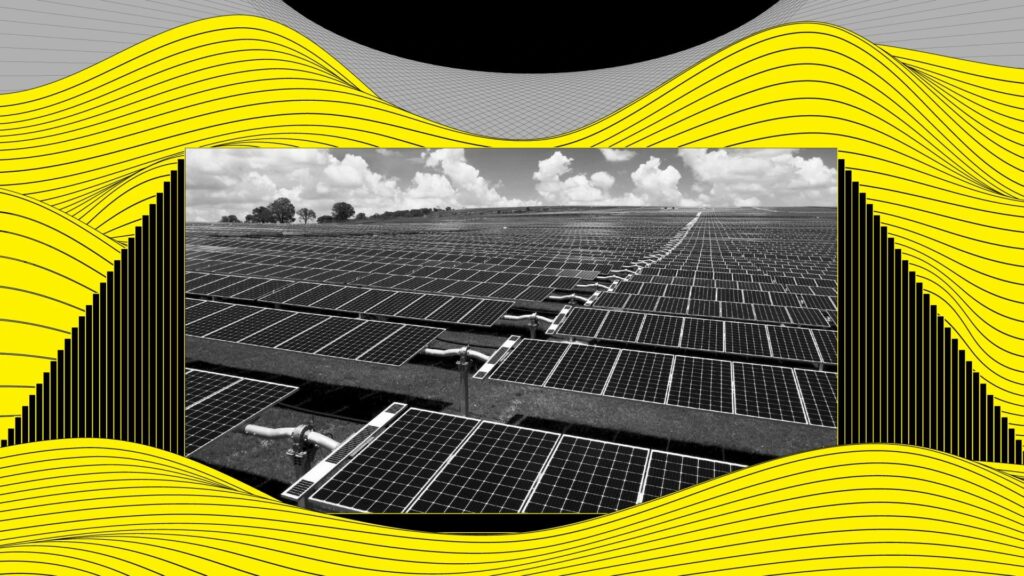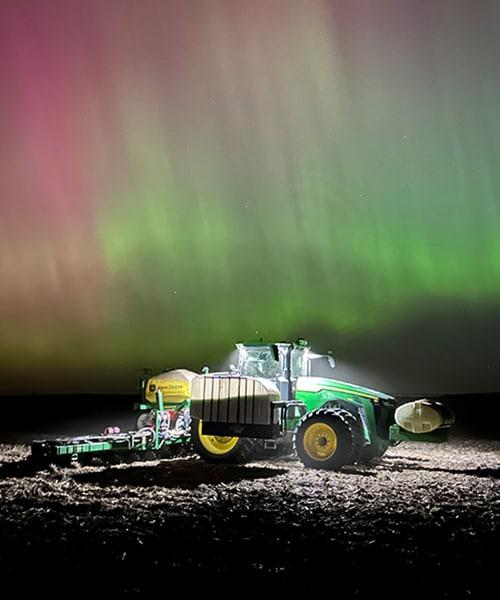Solar storms, powerful bursts of electromagnetic radiation from the Sun, have emerged as an unexpected threat to modern agricultural operations.These astronomical events interfere with GPS systems, wireless networks, and automated farming equipment that many farmers now rely on for their daily operations. As our agricultural sector becomes increasingly dependent on digital technology, the impact of solar disturbances extends beyond mere inconvenience, creating ripple effects through food production systems and supply chains. Recent space weather events have thrown agricultural operations into disarray as intense solar flares interfere with GPS systems and automated farming equipment across multiple continents. Modern farmers, heavily dependent on precision agriculture technology, face unprecedented challenges as their smart machinery malfunctions due to electromagnetic interference from these solar disturbances.
The geomagnetic storms have caused widespread disruption to automated irrigation systems, rendering them unreliable or fully inoperable. Farmers report that their GPS-guided tractors are showing notable positioning errors, sometimes deviating several meters from their programmed paths. This deviation has resulted in overlapped or missed sections during planting and harvesting operations, leading to significant waste and reduced efficiency.
Weather forecasting systems, crucial for agricultural planning, have also experienced interference, making it arduous for farmers to make informed decisions about crop management.The solar activity has affected satellite communications, disrupting real-time data transmission from field sensors that monitor soil moisture, temperature, and nutrient levels.
Smart greenhouses, which rely on automated climate control systems, have reported malfunctions in their temperature regulation and ventilation mechanisms. several large-scale operations have been forced to temporarily switch to manual controls, increasing labor costs and reducing precision in environmental management.
The financial impact is particularly severe for farms utilizing drone technology for crop monitoring and precision spraying.These unmanned aerial vehicles,dependent on GPS for navigation,have become unreliable during solar storm periods,forcing farmers to postpone essential operations or revert to traditional methods.
Agricultural experts estimate that continued solar activity could result in significant yield reductions if the situation persists. The disruption of precision farming techniques means that crops may not receive optimal care, possibly affecting both quality and quantity of harvests.
Insurance companies are now reviewing their policies to address claims related to technology failures caused by solar storms, as current coverage may not explicitly include such events. Agricultural technology manufacturers are working to develop more resilient systems that can withstand electromagnetic interference.
research institutions are collaborating with space weather monitoring agencies to create early warning systems specifically for agricultural operations. These systems would allow farmers to implement contingency plans before major solar events affect their equipment.
The situation highlights the vulnerability of modern farming operations to space weather phenomena. As agriculture becomes increasingly dependent on technology, the need for resilient systems that can withstand solar interference becomes more critical. Industry experts suggest developing backup systems and maintaining traditional farming skills to ensure operational continuity during such disruptions.this unexpected challenge has prompted discussions about the balance between technological advancement and operational reliability in agriculture, leading to new considerations in farm technology design and implementation strategies.


